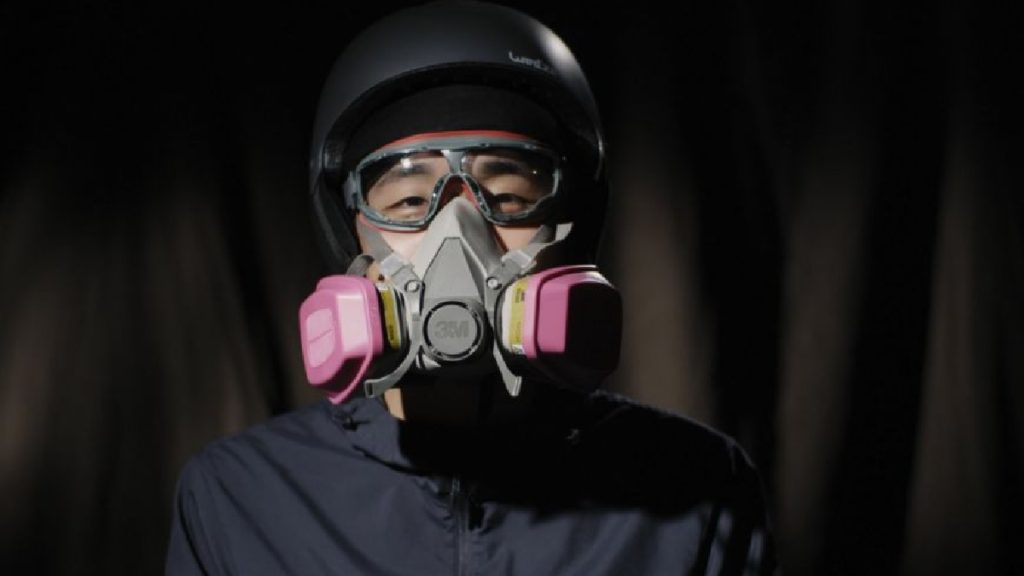Faceless is a powerful documentary on protest, freedom and democracy. It is a deafening cry against oppression and tyranny told through the perspective of ordinary people. Anonymity is both a symbol and a weapon in this film, and it is this very aspect that makes the documentary so effective.
Filmed during the 2019-2020 Hong Kong protests, the documentary follows four protestors as they fight against a new bill being introduced by the Hong Kong government. Known as the Fugitive Offenders amendment bill on extradition, or the Extradition Bill for short, it is designed to give the government the ability to extradite people to many places, notably mainland China – a place that not only is politically opposite to Hong Kong but has impossibly high conviction rates, meaning anyone convicted by China will likely never be seen again. This led to over 800 protests by the civilians of Hong Kong, of which the magnitude and spirit between the organisers is captured with Faceless.
Mad God – Edinburgh International Film Festival Review
A rich tapestry of history is woven throughout the documentary. Hong Kong has always seen itself as a separate entity from China, and has legally been so since 1997. Yet the documentary offers through visual parallels and creative transitions how, since then, Hong Kong has had its democratic image slowly repressed and attacked. If there’s anything that Hong Kong citizens take pride in, it’s their democratic right, especially the rights to protest and freedom of speech.
However, there is still a fear of consequence, be it from the Hong Kong government or mainland China, something which defeats the very purpose of the right to protest. Therefore, the protestors mask up in either gas masks, to endure the use of tear gas by law enforcement, or in the face masks we have been wearing throughout the pandemic. This way, they cannot be identified during the protests. The film grants its subjects their wish for anonymity by referring to them as different names – The Student, The Artist, The Believer, and The Daughter.
Those chosen names on their own showcase a lot about these people’s identities, without ever revealing their names or even their faces. All of them are from different backgrounds and are protesting for different reasons, be it for the next generation, LGBTQ+ rights, general principles, or even for the matter of choice. Yet all are united in their staunch belief that this bill is harmful to the democracy and people of Hong Kong. And even though they are faceless, we still get genuine insight into what drives and motivates them, creating a sense of character within each.
Martyrs Lane – Edinburgh International Film Festival Review
This includes The Student’s declaration that, although academia is important to him, a diploma is nothing compared to the future of his home. And an especially heart-breaking revelation that The Daughter’s protesting of police brutality has created tension between her and her police officer father.
Director Jennifer Ngo also makes the wise choice of stepping back and not injecting too much style into her film. This is a documentary in the purest sense in that it is capturing a period of time and how it affects its participants. There’s certainly some good filmmaking on display, be it her team’s use of shots, music, or visuals, but it is otherwise content on sitting back and letting its four participants tell their story.
By doing this we can not only glean themes of free speech and protest, but also on the link between community, suffering, and comradery. Even throughout the film the four subjects do not know each other’s faces, making them strangers to one another. Yet they all love Hong Kong and wish to see its democratic status maintained. They all endure hardship individually and collectively, including an especially tense finale that takes place between protesters and police near the university.
Absolute Denial – Edinburgh International Film Festival Review
But this shared experience only strengthens their resolve. Ngo captures this with resounding empathy and authenticity worthy of many great contemporary documentaries.
Movies like Faceless show the value of bravery and the cost of indifference with resounding power. Staunchly rooted in the democratic beliefs that drive its central figures, this is a rich and refreshingly humble work of filmmaking that brings its topics to life with riveting results. It may possibly be the film of the Edinburgh Film Festival.

